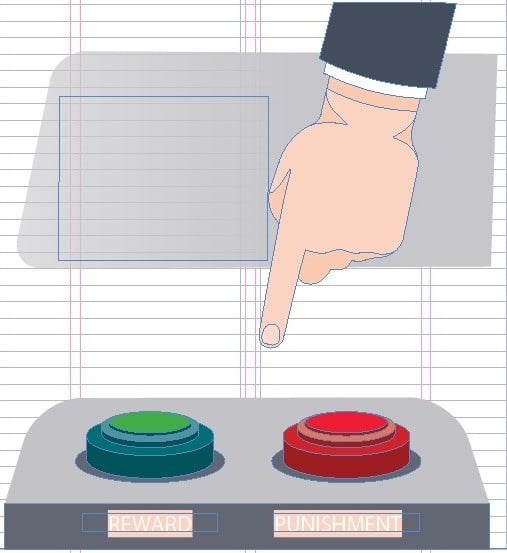ISLAMABAD:
As Pakistan’s informal economy swells to $140 billion, Prime Minister Shehbaz Sharif faces a choice between incentivising people by offering lower taxes to encourage digital payments or imposing higher costs on cash transactions for government payments and utility bills.
An expert committee on the cashless economy, made up of public and private sector representatives, recently submitted recommendations to the PM. Their approach centres around a “carrot and stick” policy.
If the PM chooses incentives, he will have to lower sales tax and petroleum levies. But if he opts for penalties, people will pay more when making payments to the government or buying fuel and other utilities. Finance Minister Muhammad Aurangzeb is set to announce the new budget on June 10. It will be clarified whether the government will focus on incentivising digital payments or punishing cash use. Previous punishment policies targeting non-filers with higher taxes have failed to deliver results. “It is up to the government whether to incentivise digital payments or punish cash users,” said a committee member in background talks.
The committee offered four key recommendations, presenting both options to the government. The first calls for mandating acceptance of digital payments by empowering district authorities to enforce the use of the RAAST QR code — an instant payment method — at all retail outlets.
Local authorities should ensure the presence of RAAST QR codes and penalise merchants for inactivity. The committee expects that within a year, one million active RAAST QR codes could be operational if enforced effectively. “The solution lies with QR codes, not credit cards,” said a committee member. “There are only 2 million credit cards and 50,000 card readers, but Pakistan has five million retail outlets.”
Merchants charge 1.5% fees on credit card payments, but only 1% on RAAST payments, the member added. The committee estimated that the informal economy makes up 35% of the economy, translating to $140 billion today. The government must choose to incentivise or punish, but past experience shows punishments don’t work.
One major recommendation is to reduce the sales tax on digital payments from 18% to 5%, along with a three-year tax audit break for digital transactions. The committee also proposed eliminating customs duties on digital payment-related equipment. They believe these incentives could double digital transactions within six months.
When the committee approached the Federal Board of Revenue (FBR) about tax cuts, the FBR said the International Monetary Fund (IMF) would oppose it. However, the IMF told the committee it had no objection and threw the ball back in FBR’s court. On the punishment side, the committee suggested making cash payments more expensive. They recommended imposing a surcharge on over-the-counter government payments, capping cash-on-delivery payments, and removing sales tax incentives on cash-on-delivery.
One punitive proposal is to increase petrol prices by 1% or Rs3 per litre for cash payments. With 12,000 petrol stations nationwide and 70% of customers on motorcycles, this could be a significant deterrent.
The committee believes the punishment policy could cut cash circulation by 2% of GDP, about Rs2.6 trillion. It also suggested that all government paymentssuch as those to Benazir Income Support Programme (BISP) beneficiaries or contractorsshould be made digitally. This would require mandatory installation of RAAST QR codes at all government payment points within six months and creating digital wallets for every government disbursement, starting with BISP. If successful, this could add 20 million new bank accounts within 18 months, the committee said. The government introduced the non-filer category in 2013 to broaden the tax base. However, over 12 years, it has become a tool to extract higher taxes rather than expand the base.
Utility bills are also being used to collect taxes, hurting sectors like telecommunications.
The telecom industry demands exemption from withholding tax deductions, similar to the banking sector. Telecom companies face deductions on thousands of transactions, such as electricity bills for cell towers. This raises compliance costs and administrative burdens. Verifying tax claims on these bills is also difficult for authorities, adding to the operational load.
The industry argues withholding tax on telecom services should not be treated as a minimum tax, which applies even during loss-making years. Current harsh recovery measures disrupt business and undermine taxpayer confidence. CMOs pay advance or withholding tax on hundreds of thousands of transactions, including electricity bills and imports. Maintaining documents and handling audits demand significant effort and cause verification issues.
They want the 4% withholding tax on telecom services to be adjustable rather than a minimum tax. The shift from adjustable income tax to minimum tax has effectively turned income tax from direct to indirect, the industry said. The sector also demands removal of the 10% advance income tax on auctions or renewals of telecom licenses. This advance tax raises business costs and capital expenses, hindering 4G/5G expansion and rural coverage.
Further, the telecom sector wants the 75% advance tax on non-filers abolished, along with measures like SIM blocking, which have not produced meaningful results.
Operators would need costly and time-consuming billing system upgrades to manage two tax rates. Since telecom services are essential, SIM blocking could deprive people of basic access. In April 2024, mobile operators were ordered to block SIM cards of over 500,000 non-filers. The Finance Act 2024 increased the advance income tax rate for non-filers to 75%. Additionally, non-compliance carries penalties of Rs50 million for the first offence and Rs100 million for subsequent violations. These punishments have failed, with the FBR shifting responsibility onto others.
The withholding tax under Section 236 rose from 10% to 15% in the 2021 supplementary Finance Act. It applies only to tax filers, yet most telecom consumers are non-filers. The industry wants this rate reduced to 12.5% in the next budget.

